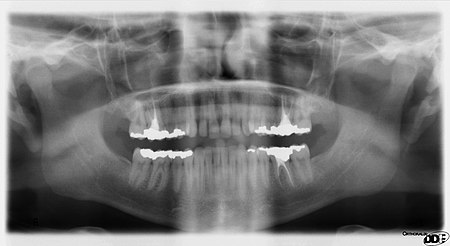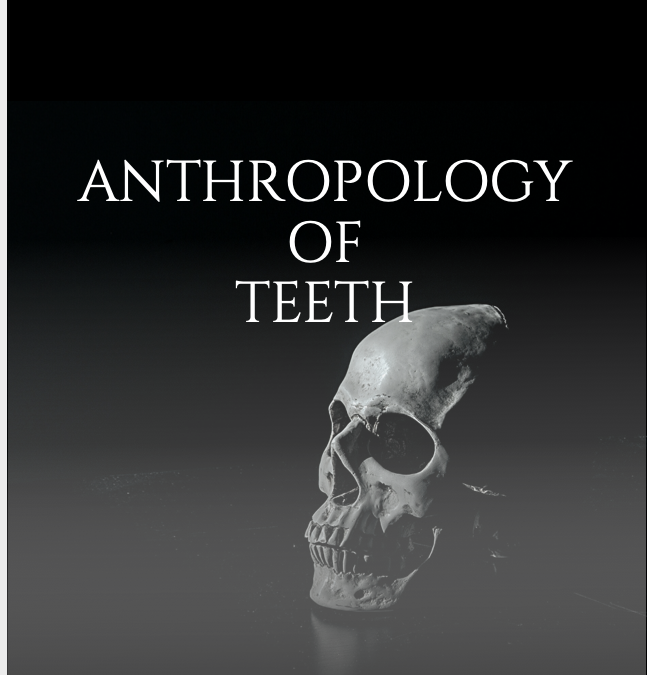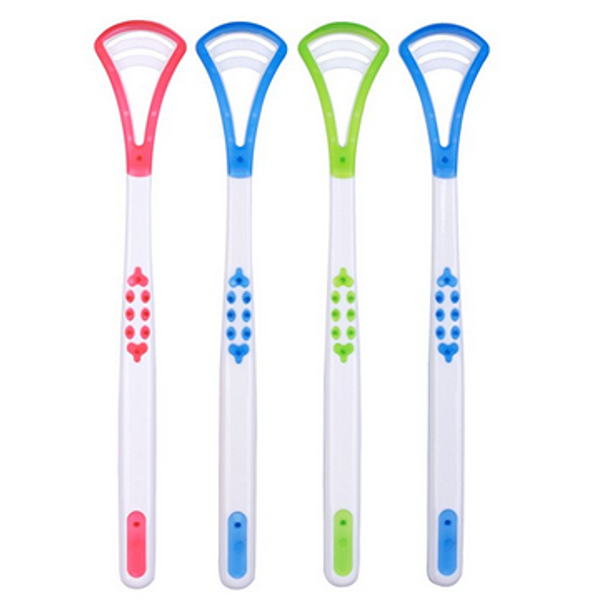
Oct 15, 2021
October is National Dental Hygiene Month and we are lucky to have such an incredible team of hygienists to honor at FDA! Ashley, Diann, Kelly, Jean, Erin, Alex, and Leigha make up the core of our practice, providing our family of patients with knowledgeable and compassionate dental care. They are the expert eyes that Dr. Brunacini and Dr. Karagiorgos rely on for comprehensive patient updates at every check-up appointment. The resilience and care that our hygienists demonstrate day-in-day-out is truly extraordinary. We are so grateful for their hard work and commitment to patient comfort and care! This month is also about promoting healthy mouths across the county, because that is what hygienists are all about! Our team of hygienists are who you see at every cleaning and check up appointment and work closely with you to set up the right oral health care routine so your teeth and mouth stay healthy. We know that learning how to prioritize wellness and self-care can be challenging, so we asked the hygienists for their top oral health care tips!
Leigha
“Flossing is one of the most important things you can do for your oral health. Best practice is to make sure the floss reaches under the gumline.”
Erin
“Xylitol products like Spry or Oxyfresh are helpful tools for decay prevention.”
Ashley
“If you don’t use an electric toothbrush, invest in one. They truly provide a superior clean and help keep the gums healthier.”
Alex
“Don’t forget to clean your tongue with a tongue scraper or brush.”
Jean
“Cleaning between teeth can be tricky, even for the best flossers. Teeth are not a flat surface and sometimes you need a little help to clean the concavities and convexities. ‘Go Betweens’ are tiny pipe-cleaner-type brushes that fit between the teeth and pick up material that floss might miss.”
Kelly
“My all time favorite tip for flossing is ‘keep it easy and simple.’ Keep a bag of ‘Plackers’ in the car and every time you drive, grab one and floss away!”
Diann
“Your oral cavity is a pathway to better health! Both a healthy diet and how you care for your teeth and gums are important. Ancient Chinese medicine held this same advice. Two minutes of proper brushing and interproximal cleaning (i.e. flossing) two times daily will help prevent numerous problems of inflammation throughout your body.”
Thank you, ladies!
Be sure to say thank you to your hygienist at your next appointment – or give them a shout out on our Facebook page! If you have any questions about their tips or want to go over your oral health care routine, give us a call – 207.781.5900. We are here to be your partner in excellent oral health care.

Sep 28, 2021
You brush, you floss, you’ve started scraping your tongue, and you come in for regular check ups. Perhaps you’ve been wondering why you need to get dental x-rays on top of your excellent oral care routine. Are dental x-rays really necessary for your oral health? The answer is yes: dental x-rays are a useful diagnostic tool for Dr. Brunacini and Dr. Karagiorgos and help them detect damage and disease not visible during a general exam. This month we spoke with Dr. Karagiorgos about why dental x-rays are an important part of your oral health care.
Dental X-rays provide dentists the opportunity to identify any potential problems in the mouth. What exactly are you looking for when you review X-rays?
Dr. Karagiorgos: X-rays are a very important diagnostic tool that allow dentists to see more of people’s teeth than what we can see in the mouth with just magnifying lenses and a headlight. With x-rays we can see things like tooth decay between adjacent teeth, we can see if there are any potential problems under the gums, in the bone or in the roots of the teeth.
Are there any types of x-rays that hurt or require special preparation or protection?
Dr. Karagiorgos: Dental x-rays themselves don’t hurt per se. There are conditions in some patients that can make it a little more difficult for those patients to take x-rays. For example, patients with a limited ability to open their mouth, patients that have a very strong gag reflex or some that have larger bony protrusions in their mouths. X-rays have evolved and improved quite a bit over the years. At Falmouth Dental Arts, we have state-of-the-art digital x-ray sensors that allow us to take and immediately see diagnostic images in high resolution, using far less radiation than the previous generation film x-rays.
What are the most serious diseases or conditions that you can prevent thanks to taking regular X-rays?
Dr. Karagiorgos: X-rays can help us routinely detect things like dental decay and tooth infections. X-rays can also help us diagnose very serious general health problems. We can see pathology in the bone like invasive cysts or cancerous tumors. Panoramic films and 3D cone beam x-rays that rotate around the head are commonly used to evaluate the jaw joints or to see wisdom teeth coming in. These x-rays with expanded fields of view can also help us see things like restricted airways, salivary blockages or even calcifications in the circulatory system of the neck which can put patients at increased risk of stroke.
What has been the most surprising thing that you have seen on Dental X-rays?
Dr. Karagiorgos: I just got back from a dental convention where a dentist presented the latest imaging technology. He presented us a slide showing x-rays taken on a 6 year old boy. His images showed what looked like a round metal object in the boy’s left sinus. The x-ray image was of such great quality that we were able to make out George Washington’s bust! It turns out that without anyone’s knowledge, the boy had lodged a quarter so deep into his nose that it ended up in the boy’s maxillary sinus. That was pretty surprising to see, but even more surprising was the very next slide.
It was an x-ray of the sinus of the boy’s 8-year-old brother. Apparently, the brother had a lego brick in the exact same location!
Are there any medical conditions or situations where you advise patients to not undergo x-rays?
Dr. Karagiorgos: Typically, no. Dental X-rays are of lower doses of radiation. They are considered generally safe. That said, we specifically try to limit x-ray exposure to expectant women. We are always weighing the risks and benefits of every treatment, and this includes taking x-rays.
As dentists, we practice the ALARA principle with radiation. ALARA stands for “as low as reasonably achievable”. This principle means that even if it is a small dose of radiation, if there is no direct benefit, you should try to avoid it.
Thank you, Dr. Karagiorgos!
When was the last time you had x-rays of your teeth taken? We recommend routine Bitewings x-rays for adults every 1-2 years depending on decay history, gum health, and dry mouth. For children and teens we recommend it every year. Major films are recommended every 3-5 years for both adults and children to monitor growth and development as well as periodontal health. Call our office today at 207.781.5900 to make your appointment!
*Image courtesy of www.wikipedia.org

Sep 15, 2021
September is here which means back-to-school and back to our routines. As you get back into the swing of things, don’t forget about your teeth! Your daily oral health routine is important for not just your mouth, but your overall health as well. We’re here to help with our top three tips to achieve better oral health!
HOW TO KEEP YOUR SMILE IN SHAPE
1. Have a Consistent Oral Routine.
- Brush your teeth twice a day with fluoride toothpaste (remember to change the toothbrush, every 3 months!).
- Clean between your teeth (you can use floss, a flossing device, or an interdental brush, whatever is more comfortable for you!).
- Scrape your tongue.
2. Eat a Healthy Diet.
- Focus on vegetables, fruits, whole grains, and legumes. They are packed with the nutrients your body needs to be up and running, and they help support oral health, too!
- Limit foods high in sugar, such as processed foods. This includes alcohol! Sugar causes cavities.
- Stop smoking or using any tobacco products. Not only does smoking stain your teeth, but it can also cause gum disease and cancer in the long term.
3. Visit Dr. Brunacini or Dr. Karagiorgos for Regular Check-Ups.
- The best way to fix dental issues is to detect them as early as possible. Visiting us will prevent dental issues from going unnoticed or getting worse.
Having a good oral health routine can be as easy as 1,2,3! Consistency is key when it comes to establishing new habits, so stick with it. If you have questions or concerns about any of these tips, please let us know! You can ask your hygienist, Dr. Brunacini, or Dr. Karagiorgos at your next appointment. It is a conversation that we have with many patients and it will help you have better overall health!

Aug 25, 2021
Not only does Dr. Brunacini love to learn more about your personal dental history during a checkup, he also loves to learn more about the larger history of human teeth. What’s not to love?! Our teeth are the result of hundreds of millions of years of evolution and are amazing! This month we continue our Dental Anthropology interview series with Dr. Brunacini. Join us for Part 2: The Evolution of Our Teeth.
What interests you about the evolution of teeth?
Dr. Brunacini: I think there is always fascination in where we came from and there is so much for us to learn! Learning more about our dental history helps us know more about the issues that impact a lot of patients currently. For example, we are learning that as our jaws have become smaller over time our ability to breathe through our nose properly has also been affected. This may contribute to developing sleep apnea and/or bruxism (grinding your teeth) and can affect multiple systems in the body.
What else have we learned about how our teeth have evolved over time?
Dr. Brunacini: As I mentioned our jaws have become smaller over time, but our teeth have changed very little. This is due to our early ancestors subsisting on a diet of chewy leaves, roots, and raw meat, which required more chewing and thus contributed to them developing much larger jaws. This allowed enough room for all of our teeth to develop properly and erupt into the correct position. As man evolved to have larger brains, our diet became softer and more processed, and our jaws shrunk. The wisdom teeth stuck around though, but with less space to accommodate them. That’s why we often have to remove wisdom teeth for our patients!
Is there an evolutionary explanation for some of the current-day dental afflictions?
Dr. Brunacini: The evolution of our diet plays a significant role in cavity formation. Cavities can develop due to eating more soft, processed foods. Of course, proper brushing and flossing help reduce the risk of cavities, but cultures that do not eat sugary, processed foods have significantly fewer dental problems. Processed foods also require less chewing, which contributes to improper jaw development and misaligned teeth. All the more reason to eat a healthy diet and come in for regular checkups with us!
Thanks, Dr. Brunacini!
We’ll continue this series later on this fall with a final interview with Dr. Brunacini on the topic. If you have a question on our dental evolution or need to schedule a checkup, please give us a call at 207.781.5900.

Aug 19, 2021
During your hygiene appointments, we frequently talk about your brushing and flossing routines. But, what about your tongue? It plays a critical role in your mouth and overall health. Find out why and how to keep it in shape.
The tongue is at the front line of the immune system and protects us against harmful bacteria entering our mouth when we eat and drink. Germs can travel from the mouth to other organs and cause disease, so keeping a consistent mouth cleaning routine is key not only for your teeth but for your overall health. That’s why Dr. Brunacini, Dr. Karagiorgos, and our team of wonderful hygienists recommend adding tongue scraping after brushing and flossing your teeth every day. It will only add one to two extra minutes to your routine and bring you a lot of benefits. Read on to learn more!
BENEFITS OF TONGUE SCRAPING
- Improves digestion. Your digestive process starts in the mouth and guess what happens when debris, bacteria and dead cells build up on your tongue? Saliva activation doesn’t work as well and your digestion suffers. However, when you scrape your tongue you clear out these blockages so your mouth can produce the correct amount of saliva and digestion can function properly.
- Helps prevent and reduce bad breath. In some people, the accumulation of bacteria in the mouth causes bad breath. Using a tongue scraper consistently will help remove it, and you will have a fresher breath!
- Boosts your immune system. We often talk about how a good oral health routine contributes to your overall health, and tongue scraping is a part of that. By scraping the tongue you will avoid the reabsorption of toxins, so that your immune system won’t be so busy dealing with them and will have more resources available to fight any other germs!
- Boosts up your sense of taste. When you scrape your tongue your taste buds will be freed of blockages and have direct contact with food again. Are you ready to rediscover how pepper, lemon or ginger really taste?
HOW TO SCRAPE YOUR TONGUE
Tongue scraping is easy! There is no secret to it, but there are a few details that we think are important for you to know, so that you make the most of it. Here’s the basic how-to:
- Touch the scraper to the back of your tongue with a little pressure and pull it forward. Always go from back to front. Scrape a few times until you make sure that you have covered all the surface.
- When you are done, wash the scraper with soap and keep it on a clean surface.
If you want to add tongue scraping into your cleaning routine, let us know and we are happy to give you a plastic tongue scraper to get you started! However, if you want to buy a copper scraper, that is also a good option. No matter what your choice is, know that washing your tongue with a toothbrush doesn’t work. Our hygienists are always happy to provide a demonstration, so please don’t hesitate to ask at your next appointment!
It’s easy to upgrade your daily oral health care routine with tongue scraping.Try it for a week and let us know about your experience! And as always, reach out to Dr. Brunacini or Dr. Karagiorgos with any questions or concerns. We’re your partners in oral health and here to help!
*Image courtesy of www.walmart.com





